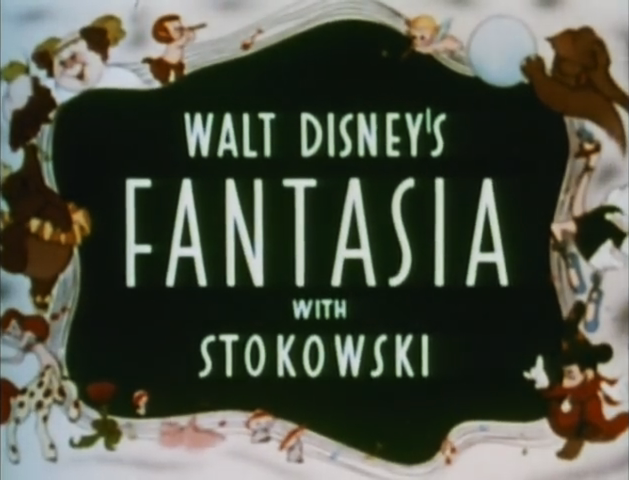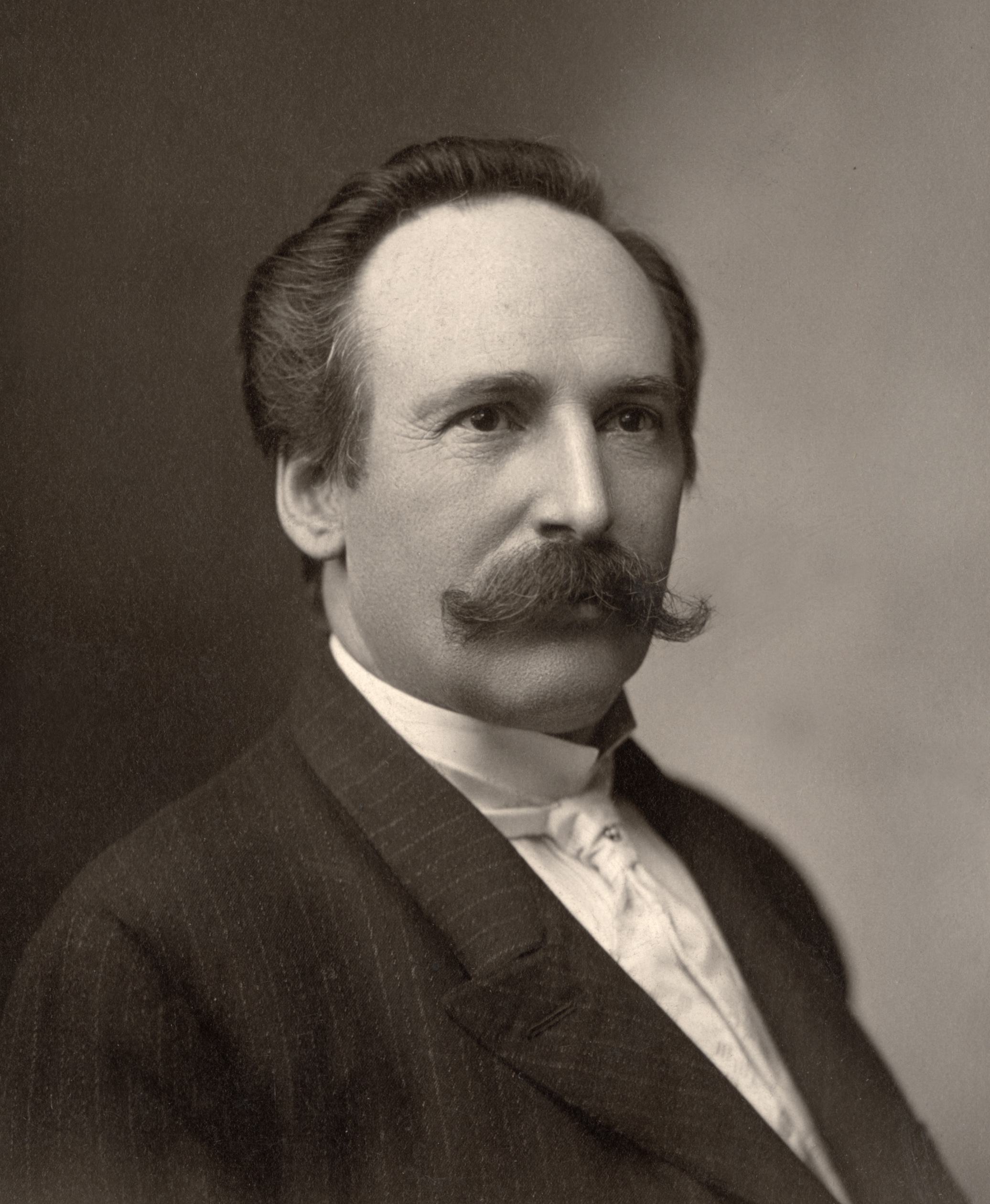|
One Hundred Men And A Girl
''One Hundred Men and a Girl'' (styled 100 Men and a Girl in advertising) is a 1937 American musical comedy film directed by Henry Koster and starring Deanna Durbin and the maestro Leopold Stokowski. Written by Charles Kenyon, Bruce Manning, and James Mulhauser from a story by Hanns Kräly, the film is about the daughter of a struggling musician who forms a symphony orchestra consisting of his unemployed friends. Through persistence, charm, and a few misunderstandings, they are able to get famed conductor Leopold Stokowski to lead them in a concert, which leads to a radio contract. ''One Hundred Men and a Girl'' was the first of two motion pictures featuring Leopold Stokowski, and is also one of the films for which Durbin is best remembered as an actress and a singer. Plot John Cardwell, a trombone player, is only one of a large group of unemployed musicians. He tries unsuccessfully to gain an interview and audition with Leopold Stokowski, but not to disappoint his daughter, Patr ... [...More Info...] [...Related Items...] OR: [Wikipedia] [Google] [Baidu] |
Henry Koster
Henry Koster (born Hermann Kosterlitz, May 1, 1905 – September 21, 1988) was a German-born film director. He was the husband of actress Peggy Moran. Early life Koster was born to Jewish parents in Berlin, Germany. He was introduced to cinema about 1910 when his uncle opened a movie theater in Berlin. Koster's mother played the piano to accompany the films, leaving the young boy to occupy himself by watching the films. After working initially as a short story writer, Kosterlitz was hired by a Berlin movie company as scenarist, becoming an assistant to director Curtis Bernhardt. Bernhardt became sick one day and asked Kosterlitz to take over as director. Career In 1932, Koster directed his first film in Berlin, the comedy ''Thea Roland''. Koster, who was in the midst of directing his second film ''Das häßliche Mädchen'', had been the subject of antisemitism, and knew he had to leave. He lost his temper at an SA officer at his bank during lunch hour and knocked the office ... [...More Info...] [...Related Items...] OR: [Wikipedia] [Google] [Baidu] |
La Traviata
''La traviata'' (; ''The Fallen Woman'') is an opera in three acts by Giuseppe Verdi set to an Italian libretto by Francesco Maria Piave. It is based on ''La Dame aux camélias'' (1852), a play by Alexandre Dumas ''fils'' adapted from his own 1848 novel. The opera was originally titled ''Violetta'', after the main character. It was first performed on 6 March 1853 at La Fenice opera house in Venice. Piave and Verdi wanted to follow Dumas in giving the opera a contemporary setting, but the authorities at La Fenice insisted that it be set in the past, "c. 1700". It was not until the 1880s that the composer's and librettist's original wishes were carried out and " realistic" productions were staged. ''La traviata'' has become immensely popular and is among the most frequently performed of all operas. Composition history For Verdi, the years 1851 to 1853 were filled with operatic activity. First, he had agreed with the librettist Salvadore Cammarano on a subject for what would ... [...More Info...] [...Related Items...] OR: [Wikipedia] [Google] [Baidu] |
Fantasia (1940 Film)
''Fantasia'' is a 1940 American animated musical anthology film produced and released by Walt Disney Productions, with story direction by Joe Grant and Dick Huemer and production supervision by Walt Disney and Ben Sharpsteen. The third Disney animated feature film, it consists of eight animated segments set to pieces of classical music conducted by Leopold Stokowski, seven of which are performed by the Philadelphia Orchestra. Music critic and composer Deems Taylor acts as the film's Master of Ceremonies who introduces each segment in live action. Disney settled on the film's concept in 1938 as work neared completion on ''The Sorcerer's Apprentice'', originally an elaborate '' Silly Symphony'' cartoon designed as a comeback role for Mickey Mouse, who had declined in popularity. As production costs surpassed what the short could earn, Disney decided to include it in a feature-length film of multiple segments set to classical pieces with Stokowski and Taylor as collaborators ... [...More Info...] [...Related Items...] OR: [Wikipedia] [Google] [Baidu] |
Stereophonic Sound
Stereophonic sound, or more commonly stereo, is a method of sound reproduction that recreates a multi-directional, 3-dimensional audible perspective. This is usually achieved by using two independent audio channels through a configuration of two loudspeakers (or stereo headphones) in such a way as to create the impression of sound heard from various directions, as in natural hearing. Because the multi-dimensional perspective is the crucial aspect, the term ''stereophonic'' also applies to systems with more than two channels or speakers such as quadraphonic and surround sound. Binaural recording, Binaural sound systems are also ''stereophonic''. Stereo sound has been in common use since the 1970s in entertainment media such as broadcast radio, recorded music, television, video cameras, cinema, computer audio, and internet. Etymology The word ''stereophonic'' derives from the Greek language, Greek (''stereós'', "firm, solid") + (''phōnḗ'', "sound, tone, voice") and i ... [...More Info...] [...Related Items...] OR: [Wikipedia] [Google] [Baidu] |
Eugene Ormandy
Eugene Ormandy (born Jenő Blau; November 18, 1899 – March 12, 1985) was a Hungarian-born American conductor and violinist, best known for his association with the Philadelphia Orchestra, as its music director. His 44-year association with the orchestra is one of the longest enjoyed by any conductor with any American orchestra. Ormandy made numerous recordings with the orchestra, and as guest conductor with European orchestras, and achieved three gold records and two Grammy Awards. His reputation was as a skilled technician and expert orchestral builder. Early life Ormandy was born in Budapest, Austria-Hungary, as Jenő Blau, the son of Jewish parents Benjamin Blau, a dentist and amateur violinist, and Rozália Berger.Birth Record of Jenő Blau (translated). Budapest, Kerület VII, Születtek, 1899, No. 3873: Reported November 22, 1899, born November 18, 1899, Jenő, male, Israelite, son of Benjamin Blau, Israelite, 29, occupation fogmüves (dentist), b. Pósaháza (Bereg ... [...More Info...] [...Related Items...] OR: [Wikipedia] [Google] [Baidu] |
Philadelphia Orchestra
The Philadelphia Orchestra is an American symphony orchestra, based in Philadelphia, Pennsylvania. One of the " Big Five" American orchestras, the orchestra is based at the Kimmel Center for the Performing Arts, where it performs its subscription concerts, numbering over 130 annually, in Verizon Hall. From its founding until 2001, the Philadelphia Orchestra gave its concerts at the Academy of Music. The orchestra continues to own the Academy, and returns there one week per year for the Academy of Music's annual gala concert and concerts for school children. The Philadelphia Orchestra's summer home is the Mann Center for the Performing Arts. It also has summer residencies at the Saratoga Performing Arts Center, and since July 2007 at the Bravo! Vail Valley Festival in Vail, Colorado. The orchestra also performs an annual series of concerts at Carnegie Hall. From its earliest days the orchestra has been active in the recording studio, making extensive numbers of recordings, primar ... [...More Info...] [...Related Items...] OR: [Wikipedia] [Google] [Baidu] |
Gerald Oliver Smith
Gerald Wilson Oliver Smith (June 26, 1892 – May 28, 1974) was an English-born actor who spent most of his career in the United States, both in New York City as a stage actor and in the Hollywood film industry. Born in Sidcup, Kent, England, Smith debuted as a music hall singer in London. He came to the United States as part of a London Gaiety Company production of ''To-night's the Night''. His Broadway career began in 1916, and he appeared in, among other productions, three George Gershwin musicals: '' Lady Be Good'' (1924), ''Oh, Kay!'' (1928) and ''Pardon My English'' (1933). He also had bit parts in silent films, such as ''The Mysterious Miss Terry'' (1917), and went on to appear in talkies and musicals in the 1930s and 1940s. He began working in Hollywood in 1937, and was frequently typecast as a genteel butler or pompous English gentleman. [...More Info...] [...Related Items...] OR: [Wikipedia] [Google] [Baidu] |
Frank Jenks
Frank Jenks (November 4, 1902 – May 13, 1962) was an acid-voiced American supporting actor of stage and films. Biography Early years Jenks was born in Des Moines, Iowa, and his mother gave him a trombone when he was 9 years old. By his late teens he was playing with Eddie Peabody and his band. Later, he became a studio musician in Hollywood, California. Movie career Jenks began in vaudeville and went on to a long career in movies and television, mostly in comedy. He was one of the more familiar faces and voices of the Hollywood Studio era. For almost ten years beginning in the early 1920s, Jenks was a song and dance man in vaudeville. In 1933, when sound films had become the norm, and Broadway actors were moving to Hollywood in droves, Jenks's flat, sarcastic delivery landed him a film career. Usually a supporting actor, Jenks did appear occasionally as a film lead for low-budget films for PRC. Jenks appeared in not a few classics. In the Cary Grant-Rosalind Russell c ... [...More Info...] [...Related Items...] OR: [Wikipedia] [Google] [Baidu] |
Jed Prouty
Jed Prouty (born Clarence Gordon Prouty; April 6, 1879 – May 10, 1956) was an American film actor. Biography Born as Clarence Gordon Prouty in Boston, Massachusetts, Prouty was a vaudeville performer before becoming a film actor. Mostly appearing in comedies, he occasionally performed a serious character role, for instance a small part as an oily publicist in '' A Star is Born'' (1937). After a significant career in silent films, a large part of Prouty's later career was the Jones Family film series. They were 17 low-budget 20th Century Fox family comedies between 1936 and 1940, along with Spring Byington as Mrs. Jones, for such directors as Malcolm St. Clair and Frank R. Strayer. Prouty appeared in all but the final entry. Partial filmography (Films marked with a caret are ''Jones Family'' films) * ''Her Game'' (1919) * ''Sadie Love'' (1919) * ''The Conquest of Canaan'' (1921) * '' The Great Adventure'' (1921) * ''Experience'' (1921) * ''Room and Board (1921) * '' Kick I ... [...More Info...] [...Related Items...] OR: [Wikipedia] [Google] [Baidu] |
Billy Gilbert
William Gilbert Barron (September 12, 1894 – September 23, 1971), known professionally as Billy Gilbert, was an American actor and comedian. He was known for his comic sneeze routines. He appeared in over 200 feature films, short subjects and television shows beginning in 1929. Career Early life and vaudeville career The child of singers with the Metropolitan Opera, he was born in a dressing room at the Hopkins Opera House in Louisville, Kentucky. Gilbert began working in vaudeville at the age of 12, and later played in burlesque on the Columbia and Mutual wheels. Big break in films Gilbert was spotted by Stan Laurel, who was in the audience of Gilbert's show ''Sensations of 1929''. Laurel went backstage to meet Gilbert and was so impressed by him he introduced him to comedy producer Hal Roach. Gilbert was employed as a gag writer, actor and director, and at the age of 35 he appeared in his first film for the Fox Film Corporation in 1929. Gilbert broke into comedy shor ... [...More Info...] [...Related Items...] OR: [Wikipedia] [Google] [Baidu] |
Mischa Auer
Mischa Auer (born Mikhail Semyonovich Unkovsky (Михаил Семёнович Унковский; 17 November 1905 – 5 March 1967) was a Russians, Russian-born American actor who moved to Hollywood in the late 1920s. He first appeared in film in 1928. Auer had a long career playing in many of the era's best known films. He was nominated for the Academy Award for Best Supporting Actor in 1936 for his performance in the screwball comedy ''My Man Godfrey'', which led to further zany comedy roles. He later moved into television and acted in films again in France and Italy well into the 1960s. Early life Auer was born in Saint Petersburg, St. Petersburg, Russia. His name is usually seen as Mischa Ounskowsky, Mischa being the German language, German transliteration of Misha (the diminutive form of Mikhail), and Ounskowsky being the French transliteration of his surname. Auer's father was a Russian naval officer whose own mother was the daughter of Hungarian-born violinist Leopold ... [...More Info...] [...Related Items...] OR: [Wikipedia] [Google] [Baidu] |
Alma Kruger
Alma Kruger (September 13, 1871 – April 5, 1960) was an American actress. Career Born in Pittsburgh, Pennsylvania in 1871 (or 1868 according to other sources), Kruger had a long career on stage before appearing in films. From 1907 to 1935, she featured in theatre plays on Broadway, mostly in Shakespearean plays such as ''Hamlet'' (as Gertrude), ''Twelfth Night'' (as Olivia), ''Taming of the Shrew'' (Widow), and ''The Merchant of Venice'' (Nerissa). Kruger was brought to Hollywood by Samuel Goldwyn. She appeared in her first film ''These Three'' (1936) while in her 60s. She then proceeded to act in over 40 films in the space of little more than a decade. Among her notable roles was Nurse Molly Byrd, the superintendent of nurses in the popular Dr. Kildare/Dr. Gillespie film series, appearing in all but the first two of the 16 movies. She portrayed Empress Maria Theresa of Austria in '' Marie Antoinette'' (1938) and the almost mother-in-law of Rosalind Russell's lead char ... [...More Info...] [...Related Items...] OR: [Wikipedia] [Google] [Baidu] |





_1.jpg)
